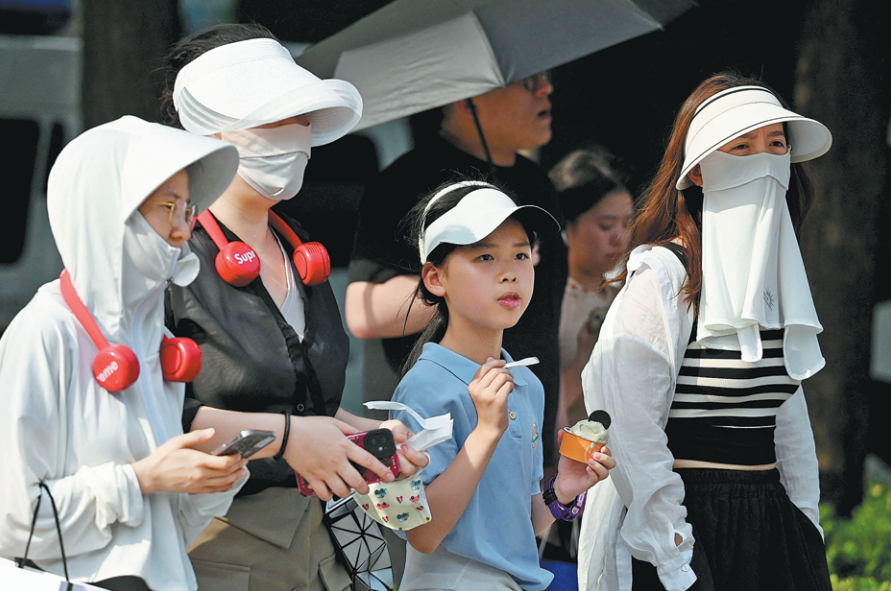Residents seek respite from scorching heat in northern provinces






Four-tier system
Beijing was among several metropolitan areas to issue the highest-level warning for soaring temperatures over the past week.
China has a four-tier, color-coded weather warning system. Red is the most severe level, followed by orange, yellow and blue. Red alerts are activated when temperatures top 40 C in a single day.
By Sunday, red alerts had been issued by cities in Shandong and Jilin provinces, and Inner Mongolia autonomous region.
Speaking at a news conference on Friday, Gao Hui, chief forecaster at the National Climate Center, said that due to global warming, extreme weather conditions, including heat waves, would become more frequent in northern provinces.
"There is a chance that temperatures will rise to record levels at some monitoring stations," he said.
Zoos in many parts of the country prepared to face the soaring temperatures.
At Beijing Zoo in the west of the city, a major tourist destination during the Dragon Boat Festival, two tigers frolicked in outdoor pools.
Beijing Daily reported that indoor areas for wild animals, including tigers and leopards, are air-conditioned day and night, with temperatures maintained at between 26 C and 28 C. Hippos at the zoo were fed iced watermelons and grapes to beat the heat.
On Friday, the zoo's management asked visitors to report any incidents of animals in outdoor areas looking stressed due to the heat. It said the doors linking outdoor areas for the animals with indoor air-conditioned spaces were being left open to ensure the creatures' welfare.
Figures issued by the park service in Beijing showed that the zoo received 115,400 visitors from Thursday to Saturday. It was the third most popular tourist attraction in the Chinese capital, after the Summer Palace and Temple of Heaven, both UNESCO World Cultural Heritage Sites.
Ma Xizhe, a social media content producer in Beijing, took his son to the zoo on Saturday in the hope of seeing its star resident Meng Lan, a male panda. However, Meng Lan did not venture outdoors that day.
"We didn't see many animals, as remaining indoors is perhaps the best way for them to beat the heat," Ma said.
Ren Lei, a technology worker in Beijing, traveled to Chengdu Research Base of Giant Panda Breeding in Sichuan province during the holiday, his first trip to the venue for seven years.
"It was too hot, so the pandas would not venture out. It's better if I visit again in the cooler months," he said.




















